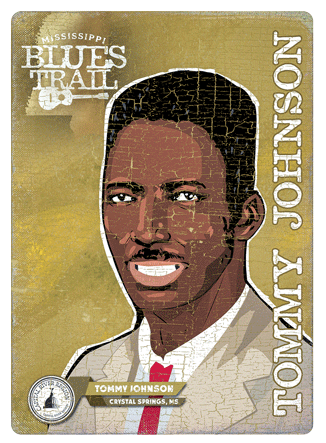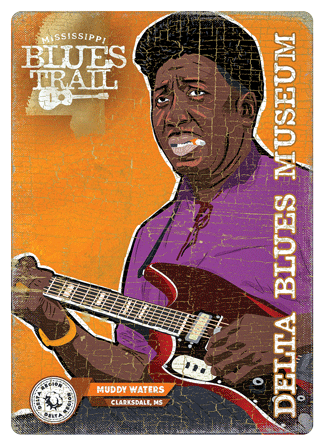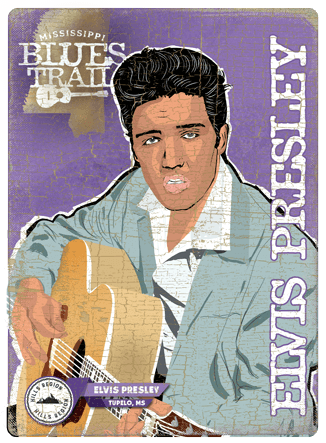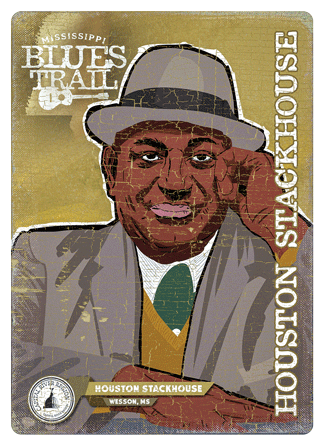
Tommy Johnson (1896-November 1,1956) was one of the most influential blues artists in Mississippi in the 1920s and 1930s. He grew up in the Crystal Springs area, where he often performed with his brothers LeDell and Mager. His original songs, which were widely covered by others, included “Canned Heat Blues,” “Big Road Blues,” and “Cool Drink of Water Blues.” He is buried in the Warm Springs Methodist Church cemetery north of town.
Tommy Johnson was a pioneer in Mississippi blues whose songs and distinctive falsetto moan were adopted by many of his contemporaries and followers. He was born in 1896 on a plantation between Crystal Springs and Terry and was one of eleven children. Johnson learned to play guitar from his older brother LeDell (1892–1972) and as a young teen ran away to the Delta. He returned two years later an accomplished performer, which, according to LeDell, Johnson attributed to a meeting with a mysterious figure at a crossroads. The story, which involved Johnson handing over his guitar to a large black man who tuned it for him, predates the similar and more famous tale of the (unrelated) bluesman Robert Johnson (1911-1938) selling his soul to the devil at the crossroads.
In 1916 Johnson moved back to the Delta with LeDell and their wives, settling on a plantation in Drew. There Johnson renewed his ties with local bluesmen who had influenced him on his earlier visit, notably Charley Patton, Willie Brown, and Dick Bankston. After a year in Drew, Johnson traveled for several years and upon returning to Crystal Springs played music locally with LeDell and their younger brothers Clarence (1904–1945) and Mager (1905–1986). Johnson’s brothers lived relatively settled lives—LeDell became a preacher—but Tommy continued to travel extensively, playing in the Delta with Charley Patton and working regularly at parties and dances in Jackson with Rubin Lacy, Charlie McCoy, Walter Vinson, and Ishmon Bracey. Johnson’s recordings for the Victor and Paramount labels from 1928 to 1930 included “Canned Heat Blues,” “Big Road Blues,” “Maggie Campbell Blues,” “Bye Bye Blues,” “Big Fat Mama Blues,” and “Cool Drink of Water Blues,” which contains the memorable line “I asked for water, and she gave me gasoline.” In addition to his solo performances, he recorded with the New Orleans-based jazz group the Nehi Boys.
Although Johnson did not record after 1930, reportedly due to issues with his rights, he remained a popular performer in Crystal Springs and Jackson, and his influence is evident in the commercial recordings of Kokomo Arnold, the Mississippi Sheiks, Howlin’ Wolf, K. C. Douglas, Floyd Jones, and Robert Nighthawk. Musicologist David Evans, author of two books on the blues tradition associated with Johnson, also documented Johnson’s local influence through field recordings of Babe Stovall, Arzo Youngblood, Mott Willis, Roosevelt Holts, Houston Stackhouse, and Boogie Bill Webb. Johnson’s final performance was at a party in Crystal Springs.


